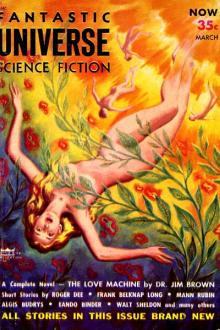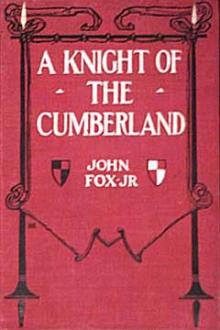Genre Fiction. Page - 182

referred manlystrength and vivacity even though accompanied by a shade of bluntness.But Sibyl always received Graham Marr with one of her bright smiles,and she would listen to his poetry hour after hour; for Graham wroteverses, and liked nothing better than reclining in an easy chair andreading them aloud.
"What Sibyl can see in Gra-a-m'ma, I cannot imagine," Bessie wouldsometimes say; "he is a lazy white-headed egotist; a good judge oflace and ribbons, but mortally afraid of a dog, and as to powder, thevery sight of a gun makes him faint."
But Aunt Faith had heard of the fortune which would come to GrahamMarr at the death of an uncle, and she could not but fear that Sibylhad heard of it also. The grandfather, displeased with his sons, hadleft a mill tying up his estate for the grandchildren, who were not toreceive it until all of the first generation were dead. Only one sonnow remained, an infirm old man of seventy, and at his death thehoarded treasure would be divided among the heirs, tw

ou're saying, Jason?" asked his father sharply as he brought the little oil lamp from the sitting room into the kitchen. Mrs. Wilkins followed. This was a detestable job, the sorting of the donation debris, and was best gotten through with, at once. Jason, shading the candle light from his eyes, with one slender hand, looked at his father belligerently.
"I was saying," he said, "that it was too bad you don't have to wear some of the old rags sometimes, then you'd know how mother and I feel about donation parties."
There was absolute silence for a moment in the little kitchen. A late October cricket chirped somewhere.
Then, "O Jason!" gasped his mother.
The boy was only twelve, but he had been bred in a difficult school and was old for his years. He looked again at the heaps of cast-off clothing on the floor and his gorge rose within him.
"I tell you," he cried, before his father could speak, "that I'll never wear another donation party pair of pants. No, nor a shirt-tail shi

nder cover
that wanted light--
pears wadded in cloth,
protected from the frost,
melons, almost ripe,
smothered in straw?
Why not let the pears cling
to the empty branch?
All your coaxing will only make
a bitter fruit--
let them cling, ripen of themselves,
test their own worth,
nipped, shrivelled by the frost,
to fall at last but fair
with a russet coat.
Or the melon--
let it bleach yellow
in the winter light,
even tart to the taste--
it is better to taste of frost--
the exquisite frost--
than of wadding and of dead grass.
For this beauty,
beauty without strength,
chokes out life.
I want wind to break,
scatter these pink-stalks,
snap off their spiced heads,
fling them about with dead leaves--
spread the paths with twigs,
limbs broken off,
trail great pine branches,
hurled from some far wood
right across the melon-patch,
break pear and quince--
leave half-trees, to

e one sentence, and is generally read at onesitting. Sir Joshua Reynolds, meeting it in a country inn, began toread it while standing with his arm leaning on a chimney-piece, andwas not able to lay it aside till he had finished it, when he foundhis arm totally benumbed. In 1745, Johnson issued proposals for a newedition of Shakspeare, but laid them aside for a time, owing to thegreat expectations entertained of the edition then promised byWarburton.
For several years, except a few trifles in the Gentleman's Magazine,and his famous "Prologue delivered at the Opening of Drury LaneTheatre," he seems to have written nothing. But in 1745 appeared theprospectus of his most laborious undertaking, the "English
Dictionary." This continued his principal occupation for some years,and, as Boswell truly observes, "served to relieve his constitutionalmelancholy by the steady, yet not oppressive, employment it securedhim." In its unity, too, and gigantic size, the task seemed fitted forthe po

the spinster aunt--she would enjoy it! But there was no help for it. It must be faced.
Naturally Mr. Pickwick felt uncomfortable, and his first idea was to arrange the matter. This was a sensible course, and he ought at once to have put the matter into the hands of his friend Perker, with full powers to treat. But no. Mr. Pickwick's vanity and indiscretion made him meddle in the business behind his solicitor's back, as it where, and with damaging results to himself--a warning to all such amateurs. It must be said that Dodson and Fogg's behaviour at the extraordinary visit which he paid them was marked by a certain propriety. Mr. Pickwick insisted on knowing what were the grounds of action--that is, the details of the evidence against him--in short, their case. They, very correctly, refused to tell him. "The case may be false or it may be true--it may be credible it may be incredible." But all the same it was a strong case. This was as much as they could tell. Mr. Pickwick could only urge that

d, offering his earphones to Dr. Shalt, who grabbed for them hurriedly. The scientist raised the cups to his ear and waited. The room fell into deeper silence.
"Yes, yes, it's the voice! Turn up the resonator to full volume! We've got it! The voice is completing the circuit!" Dr. Shalt said tensely.
The technician turned another dial as far as it would go. The sound of the static rose to a roar. Then abruptly the static broke, died out and a strange new sound came in. It was Spud! Spud's voice creeping back from a trip to Mars, thirty-five million miles away!
"Hello.... This is the voice of Spud O'Malley. I speak to you from Harlow Field in the United States of America. My voice is being sent to you by a newly invented Amplification Unit developed by Dr. Paul Shalt at this experimental base. This is the first time such an operation has ever been tried. We extend our heartiest greetings, our deepest felicitations ..."
It went on, the high, squeaking voice, friendly, humorou

e gray horse started calmly on down and those two girls shrieked with laughter--they knew no better. First one way and then the other down the mountain went those mules, with me after them, through thick bushes, over logs, stumps and bowlders and holes--crossing the path a dozen times. What that path was there for never occurred to those long-eared half asses, whole fools, and by and by, when the girls tried to shoo them down they clambered around and above them and struck the path back up the mountain. The horse had gone down one way, the mules up the other, and there was no health in anything. The girls could not go up--so there was nothing to do but go down, which, hard as it was, was easier than going up. The path was not visible now. Once in a while I would stumble from it and crash through the bushes to the next coil below. Finally I went down, sliding one foot ahead all the time--knowing that when leaves rustled under that foot I was on the point of going astray. Sometimes I had to light a match to mak

show it with great satisfaction to his mother. She was much delighted athis skill and said:
"You are surely going to be a wood-carver, and a very good one."
From that time on Toni looked at every little piece of wood which came inhis way, to see if it would be good for carving, and if so he wouldquickly put it away, so that he often brought home all his pockets full ofthese pieces, which he then collected like treasures into a pile and spentevery free moment carving them.
Thus the years passed by. Although Elsbeth always had many cares, sheexperienced only joy in her Toni. He still clung to her with the samelove, helped her in every way as well as he could and spent his lifebeside her, entirely at his quiet occupation, in which he graduallyacquired a quite gratifying skill. Toni was never so content as when hewas sitting in the little stone hut with his carving and his mother camein and out happily employed, always saying a kindly word to him andfinally sat down beside him at her spinning

